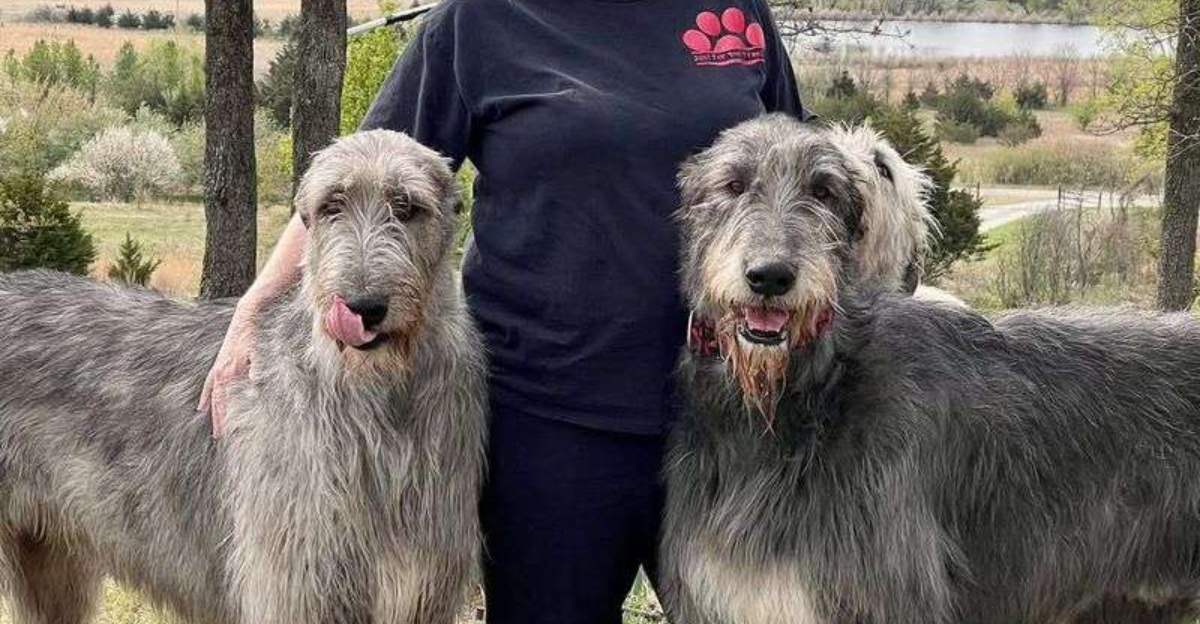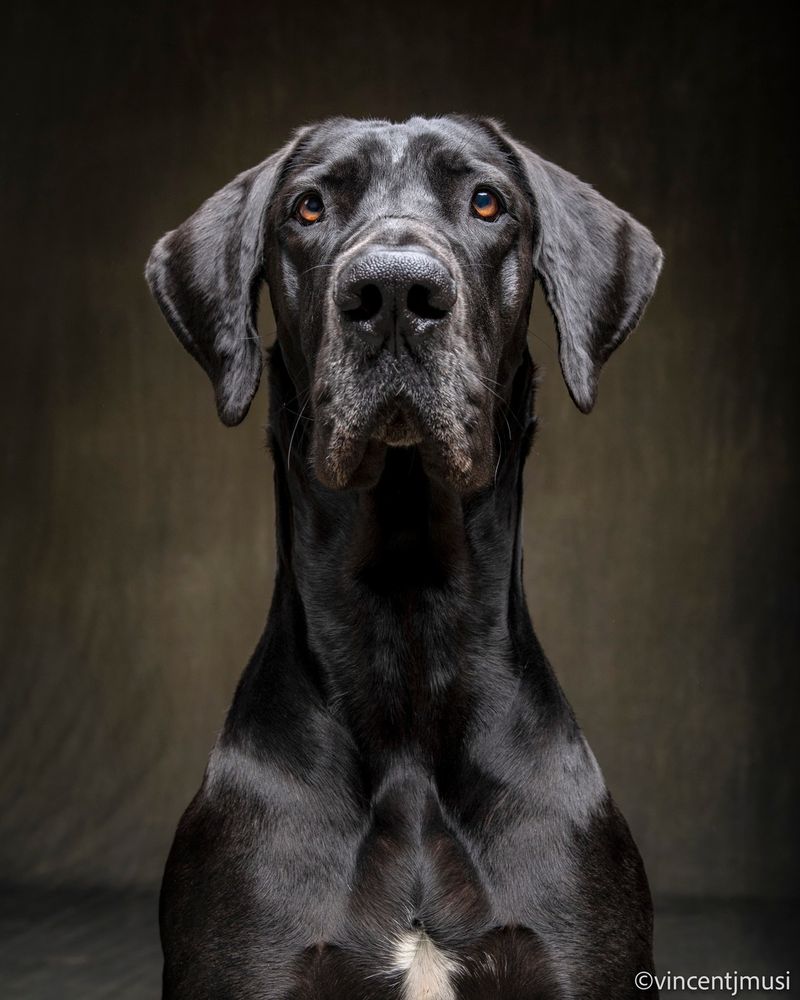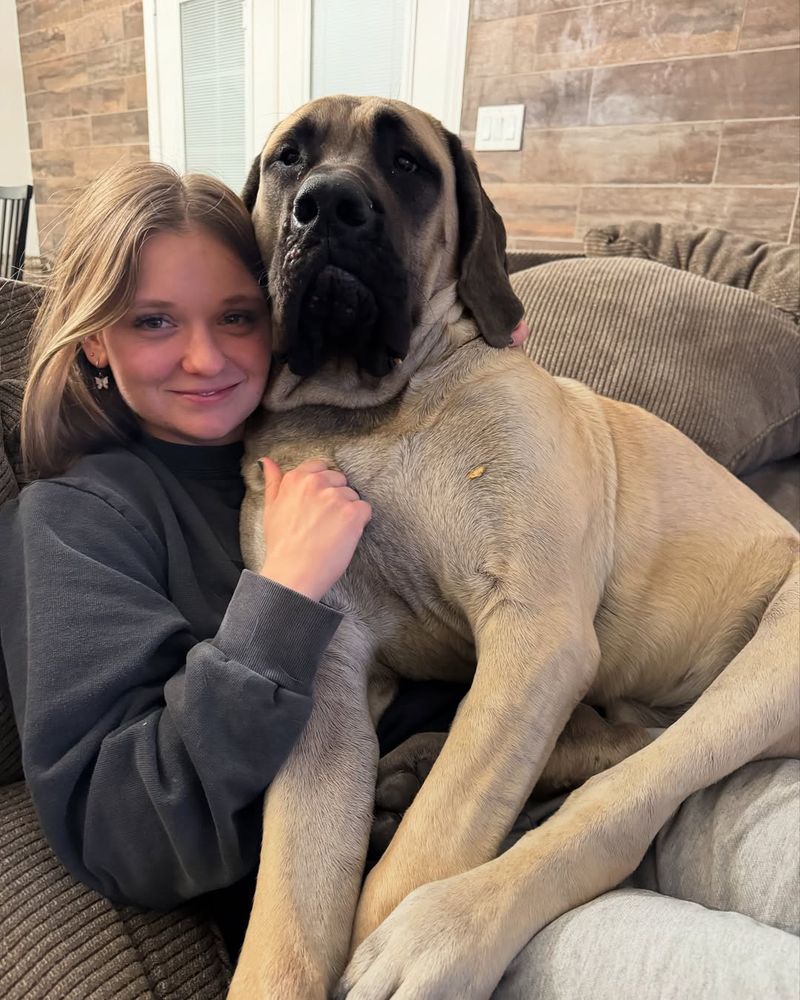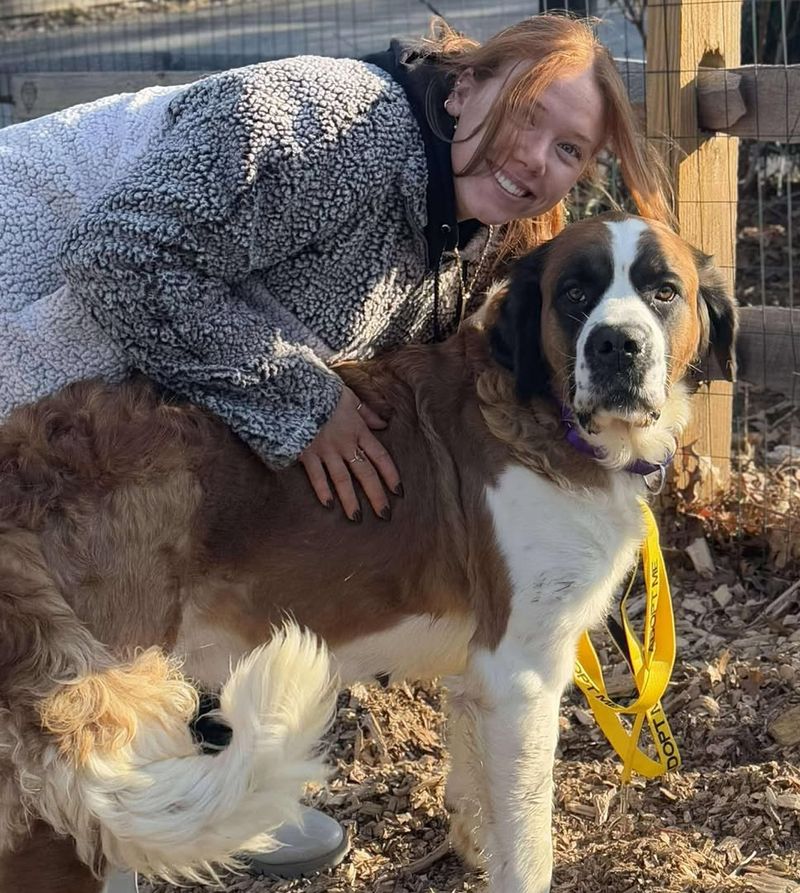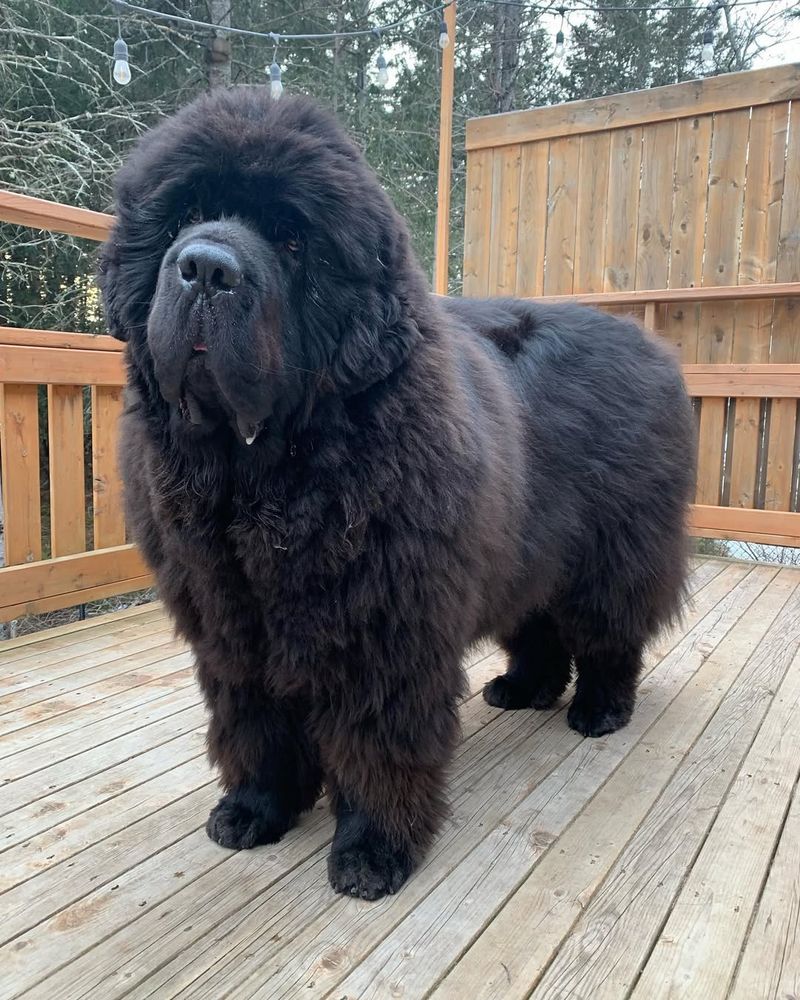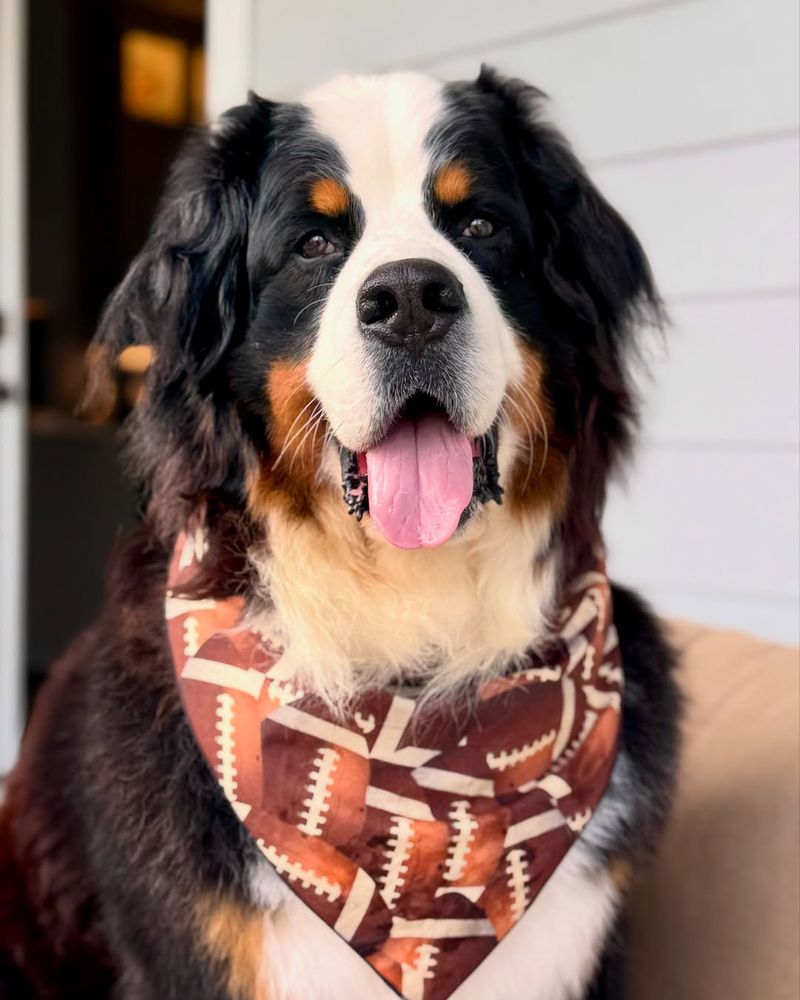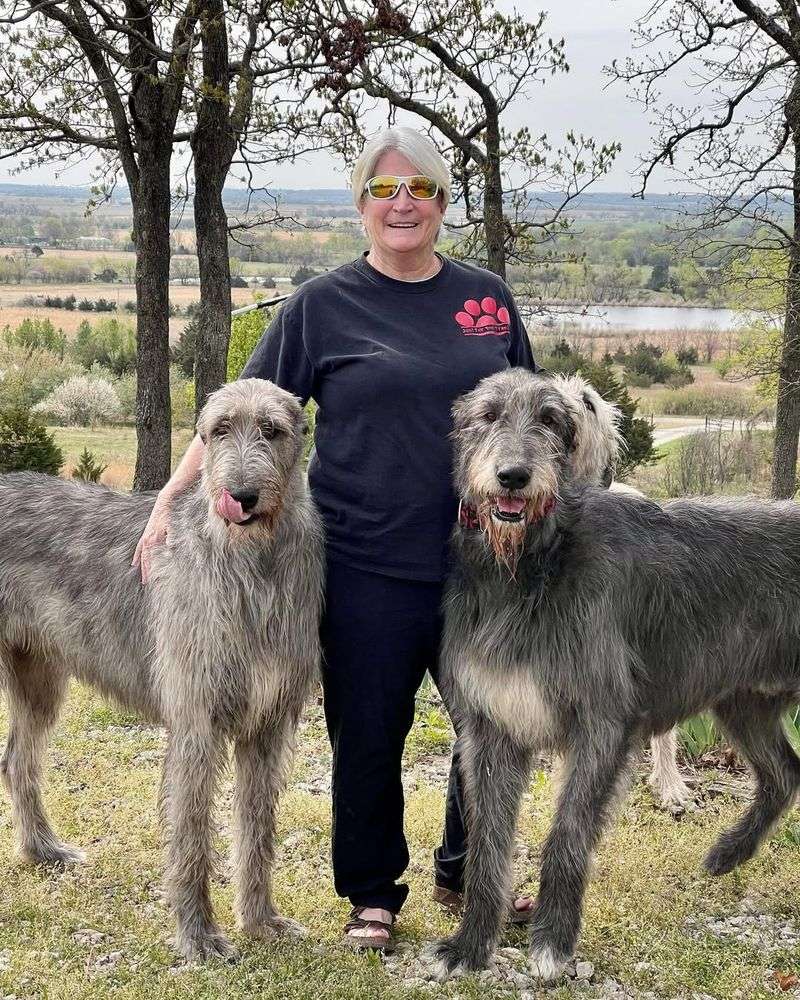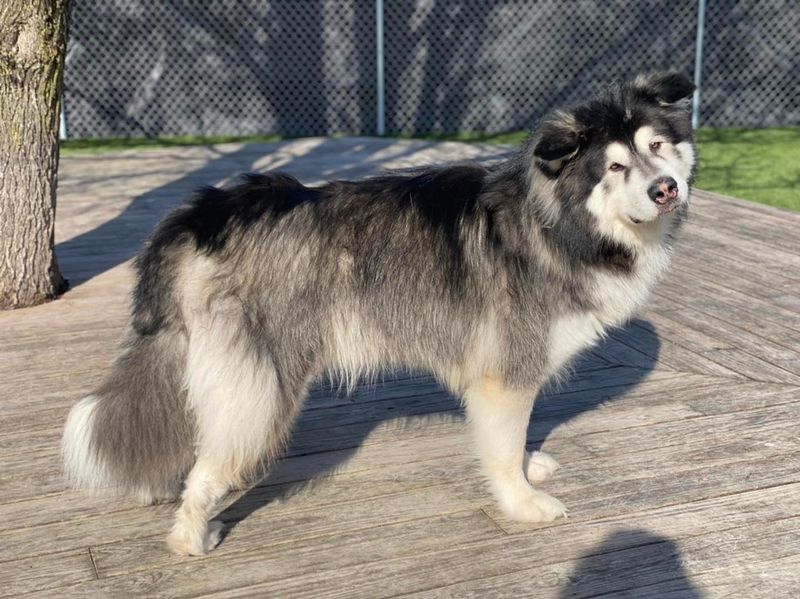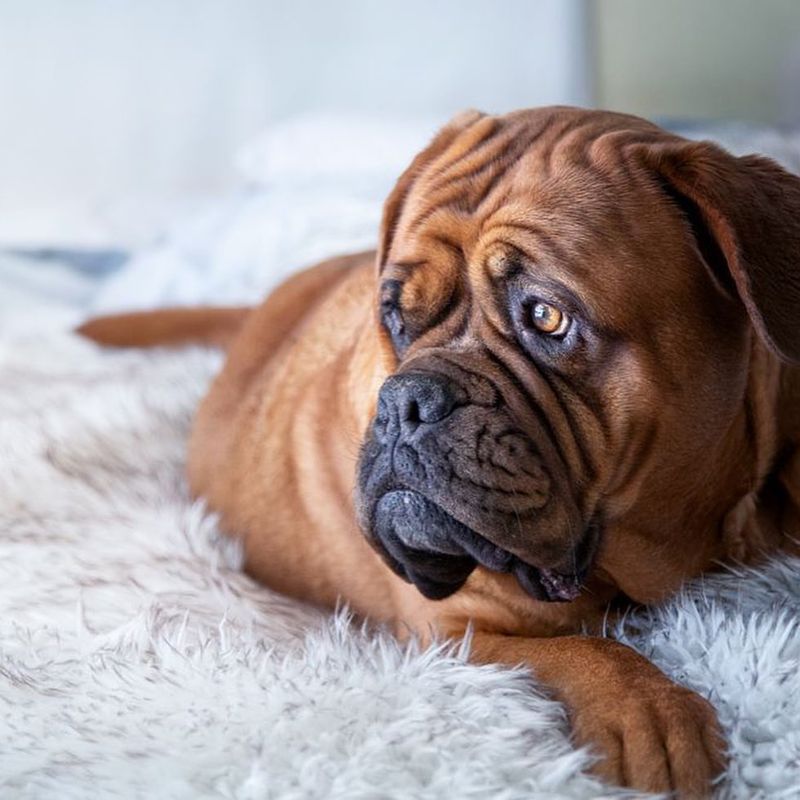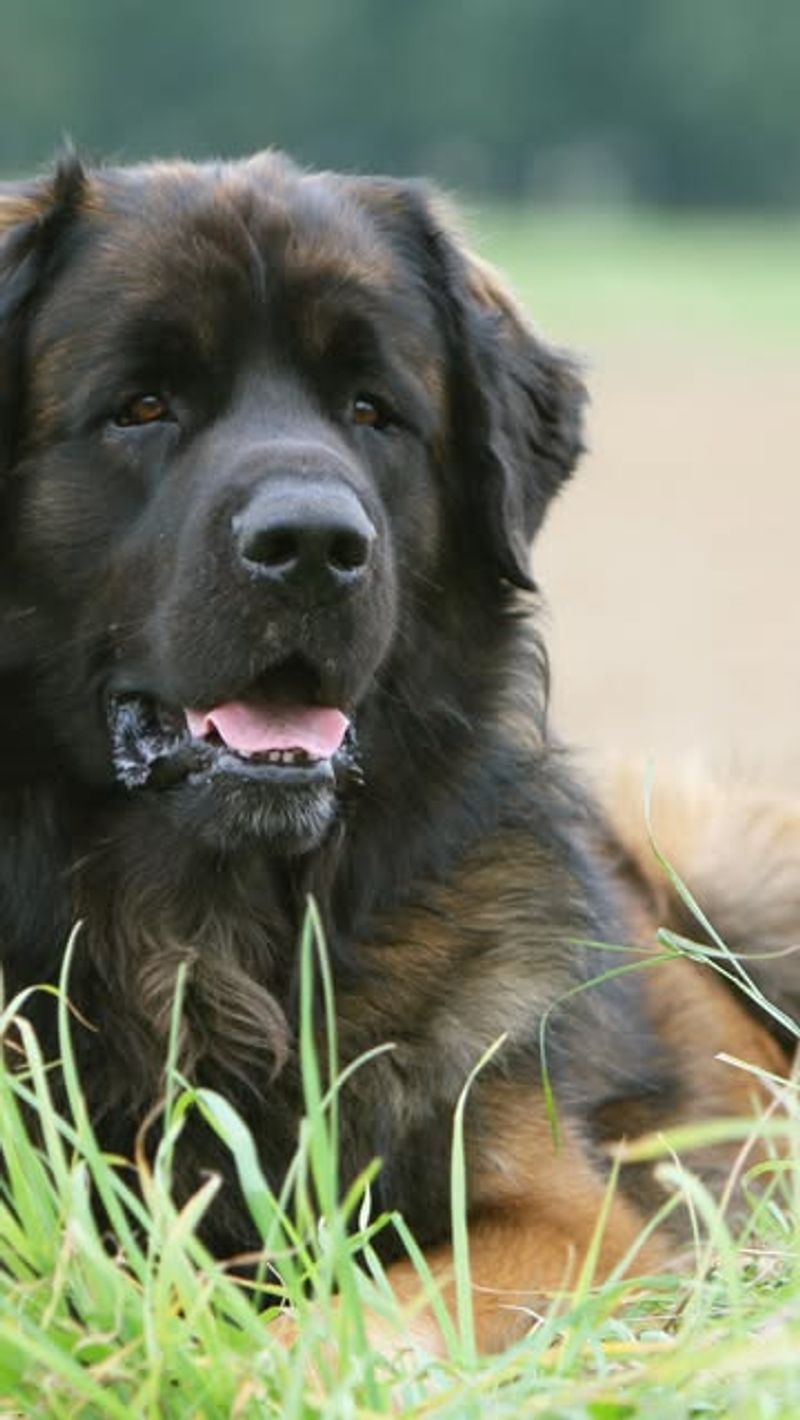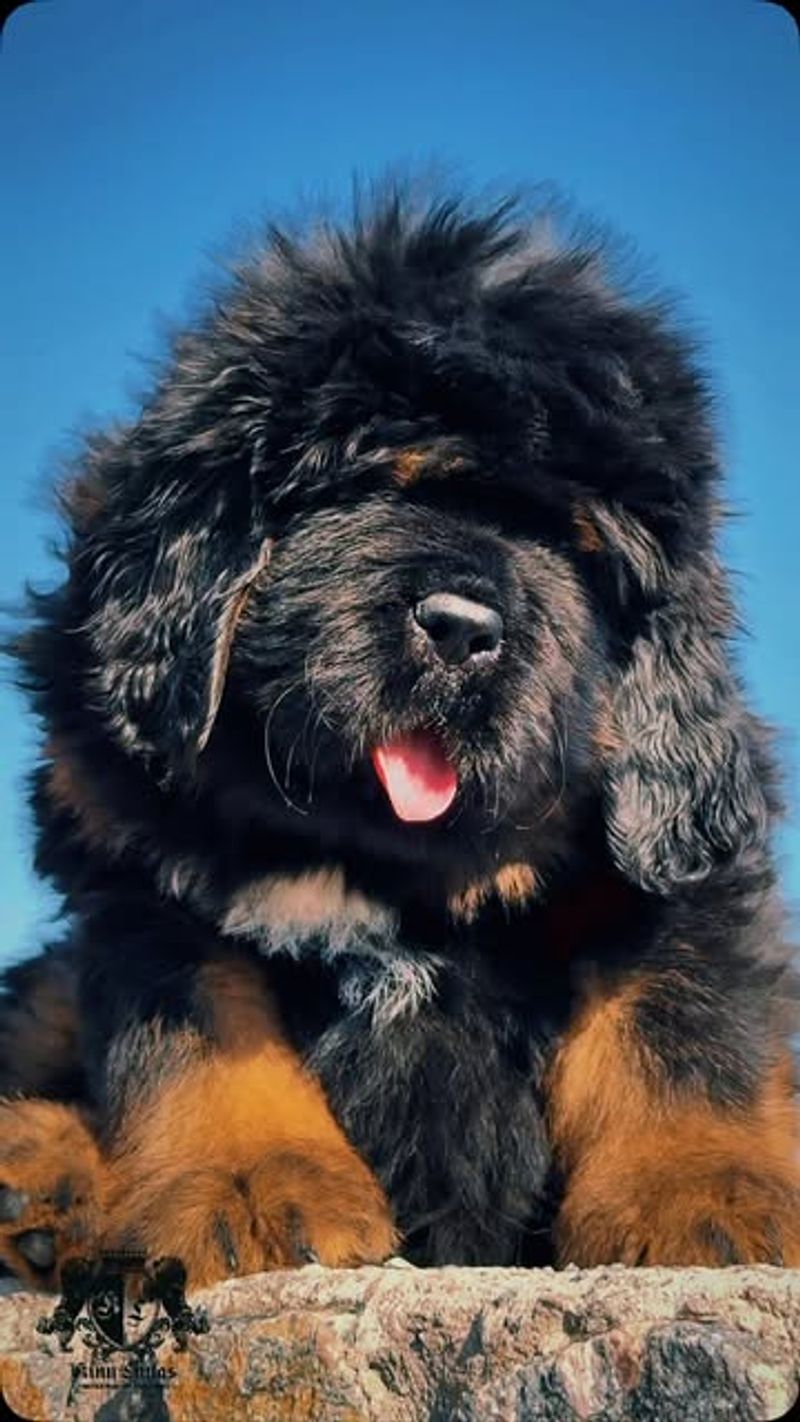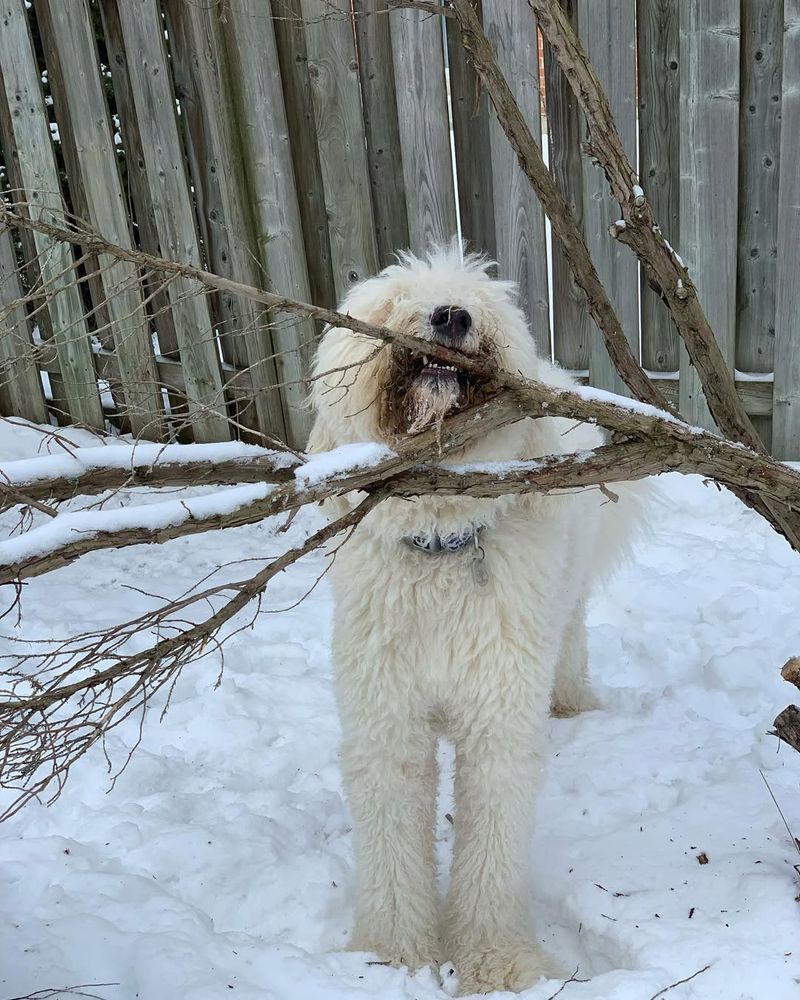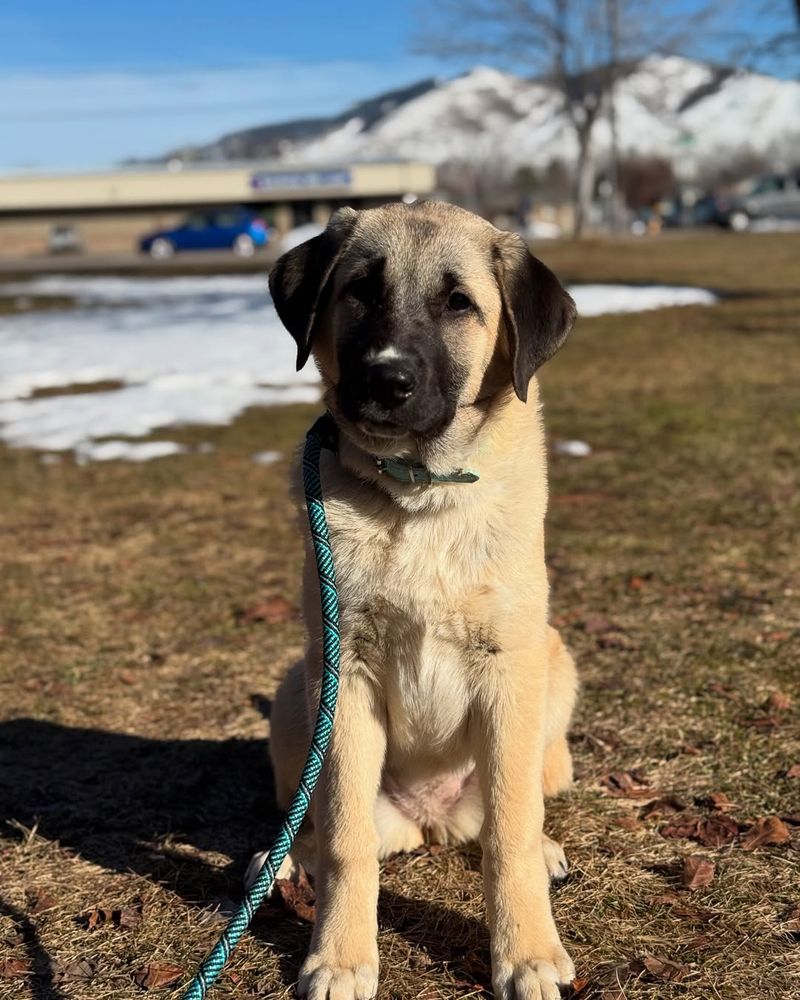While large dog breeds can be incredibly rewarding companions, they often come with unique challenges that may not align with every lifestyle. From their considerable size to their demanding exercise requirements, these dogs require careful consideration before bringing them into your home. Here, we’ll explore twelve large dog breeds that may not suit every potential dog owner.
Great Dane
Great Danes are known for their gigantic stature, often called the “Apollo of dogs.” Standing tall and elegant, they require significant space to roam freely. Their size necessitates a robust diet and exercise plan to maintain health. Although gentle giants, their sheer size can be overwhelming, especially in small homes or apartments. They thrive in spacious environments with a secure backyard. Prospective owners should consider the costs associated with medical care, as their large frames can lead to health issues. With the right training and care, they make affectionate companions.
Mastiff
Mastiffs are celebrated for their imposing presence and loyal nature. These massive dogs boast protective instincts, making them excellent guard dogs. However, their size can be intimidating, requiring strong leadership from their owners. They need ample space to stretch and move, making apartment living challenging. Mastiffs often slobber, which may be undesirable for some owners. Proper training and socialization are essential to manage their protective nature. Despite challenges, Mastiffs are incredibly loyal, forming deep bonds with family members. Prospective owners should be prepared for a lifetime commitment and the unique needs of this breed.
Saint Bernard
Saint Bernards are iconic for their large size and affectionate demeanor. Bred for alpine rescues, they possess thick coats suited for cold climates. Their size and strength mean they require significant physical activities. These gentle giants are known for their patience with children, yet their massive build demands careful supervision around small kids. They thrive in spacious homes with a cool environment to avoid overheating. Regular grooming and training are necessary to keep them healthy and well-mannered. Saint Bernards make loving family pets with the right commitment and space.
Newfoundland
Newfoundlands are gentle giants renowned for their sweet disposition and swimming prowess. Their webbed feet and water-resistant coats make them exceptional lifeguards. Families with pools or proximity to water will find them joyful companions, though their large size requires a spacious living area. Newfoundlands shed heavily and drool, necessitating regular grooming and cleaning. They are social animals, needing consistent interaction with their human families. While they are calm and patient, they require firm training to manage their size and strength. Newfoundlands are rewarding pets for those who can meet their needs.
Bernese Mountain Dog
Bernese Mountain Dogs are known for their striking tricolored coats and friendly nature. Originally from Swiss farms, they are hardworking and thrive in cool climates. Their thick coats require regular grooming to prevent matting. These dogs are affectionate but can be wary of strangers. They require significant exercise and mental stimulation to prevent boredom. Living in a spacious home with a yard is ideal to accommodate their size. With the right training, Bernese Mountain Dogs make loyal companions, best suited for active families who enjoy the outdoors and can devote time to their needs.
Irish Wolfhound
Irish Wolfhounds are majestic and among the tallest of breeds. Known for their gentle demeanor, they require ample space to roam and exercise. Their size can be daunting, especially in small living quarters. Despite their stature, they are known for being calm and friendly, making them great family pets. They require regular grooming and a substantial diet to maintain health. Prospective owners should be aware of their relatively short lifespan and potential health issues. Irish Wolfhounds are best for those with expansive living spaces and the commitment to their care and exercise needs.
Alaskan Malamute
Alaskan Malamutes are robust dogs known for their strength and endurance. Bred for sledding, they thrive in cold climates and require vigorous exercise. Their thick double coat necessitates regular grooming, and they shed heavily. They are social animals needing engagement with their human pack. Malamutes can be stubborn, requiring experienced handling and consistent training. They are not ideal for apartment living due to their size and energy levels. Families with active lifestyles and the ability to provide ample outdoor time will find them delightful and loyal companions.
Dogue de Bordeaux
The Dogue de Bordeaux, with its iconic wrinkled face and muscular frame, exudes strength and loyalty. These dogs form strong bonds with their families but require confident leadership. Their protective nature makes them excellent guard dogs, though early socialization is crucial. They need room to move and do not fare well in cramped spaces. Health considerations include joint issues and a tendency to slobber. Proper care and training ensure they flourish as faithful companions. Dogue de Bordeaux suits owners prepared for their size and commitment to a structured environment.
Leonberger
Leonbergers are large, lion-like dogs known for their friendly and gentle temperament. They require ample space to accommodate their size, making them unsuitable for small apartments. Regular grooming is essential to manage their thick, water-resistant coats. Leonbergers are sociable and thrive in family settings, often enjoying the company of children. They need consistent training to nurture their intelligence and prevent unwanted behaviors. Their size and energy levels demand regular exercise. Leonbergers are great for families who have the space and time to dedicate to their care and companionship.
Tibetan Mastiff
The Tibetan Mastiff is renowned for its impressive size and regal demeanor. These independent dogs are excellent watchdogs, requiring experienced handlers. Their thick double coat suits cold climates but requires regular grooming. Tibetan Mastiffs are best in large spaces where they can roam freely. They possess strong protective instincts, needing early socialization and firm training. These dogs are not ideal for novice owners or those with limited space. Despite challenges, they are loyal and devoted to their families, thriving in environments that respect their independence and provide structured discipline.
Komondor
Komondors are distinguished by their unique corded coats, resembling a mop. Originally bred as livestock guardians, these dogs are independent and strong-willed. Their coats require meticulous care to prevent matting. Komondors need space to patrol and are unsuited for confined living. They are protective of family and property, necessitating early and consistent training. While loyal, they are best for experienced owners who can manage their independent spirit. Komondors thrive in rural settings where their natural guarding instincts are an asset, making them excellent companions for those with specific needs for protection.
Anatolian Shepherd
Anatolian Shepherds are formidable livestock guardians, known for their independence and protective nature. They thrive in large, open spaces where they can effectively guard flocks. Their strong instincts require knowledgeable handling and socialization from an early age. Anatolian Shepherds are not suited for urban environments due to their size and need for space. These dogs are loyal to their families but wary of strangers, making them excellent guardians. Owners must commit to their training and exercise needs. Anatolian Shepherds are ideal for those with the space and experience to accommodate their unique traits.
